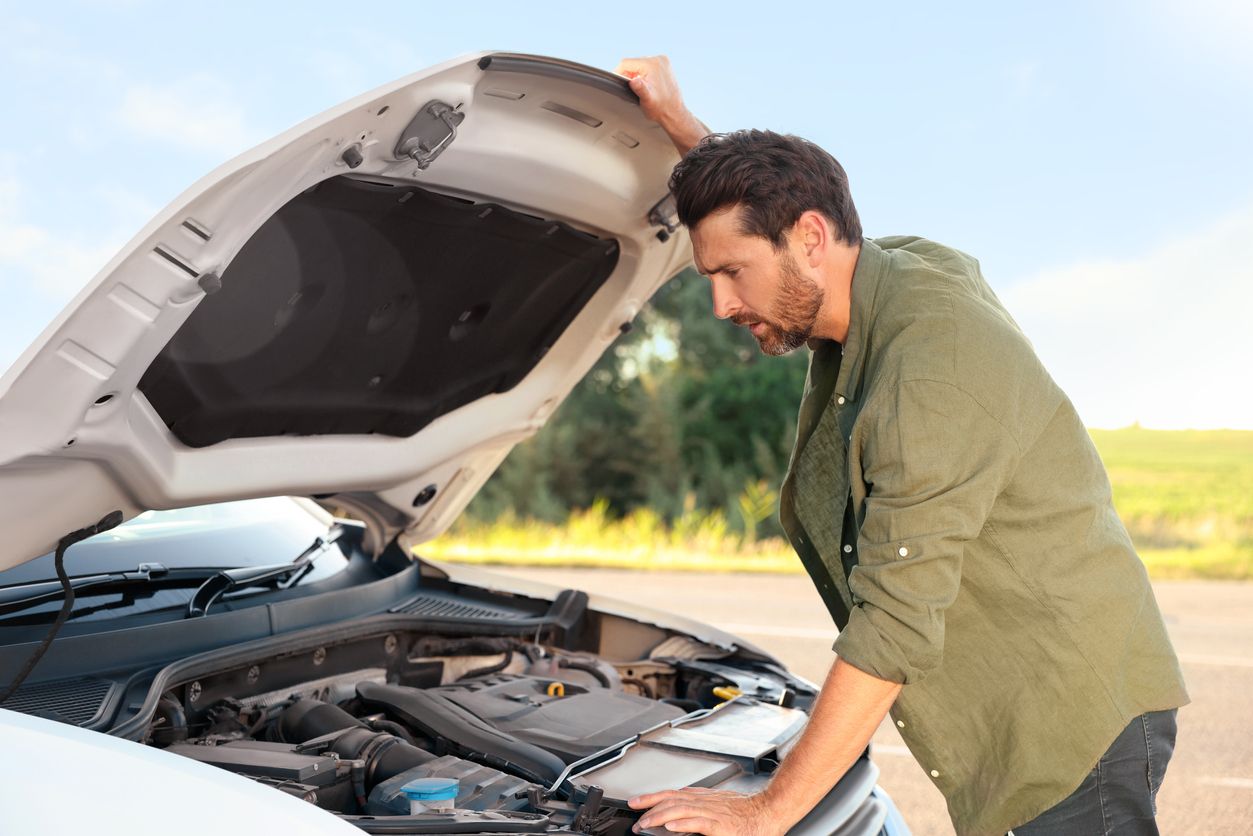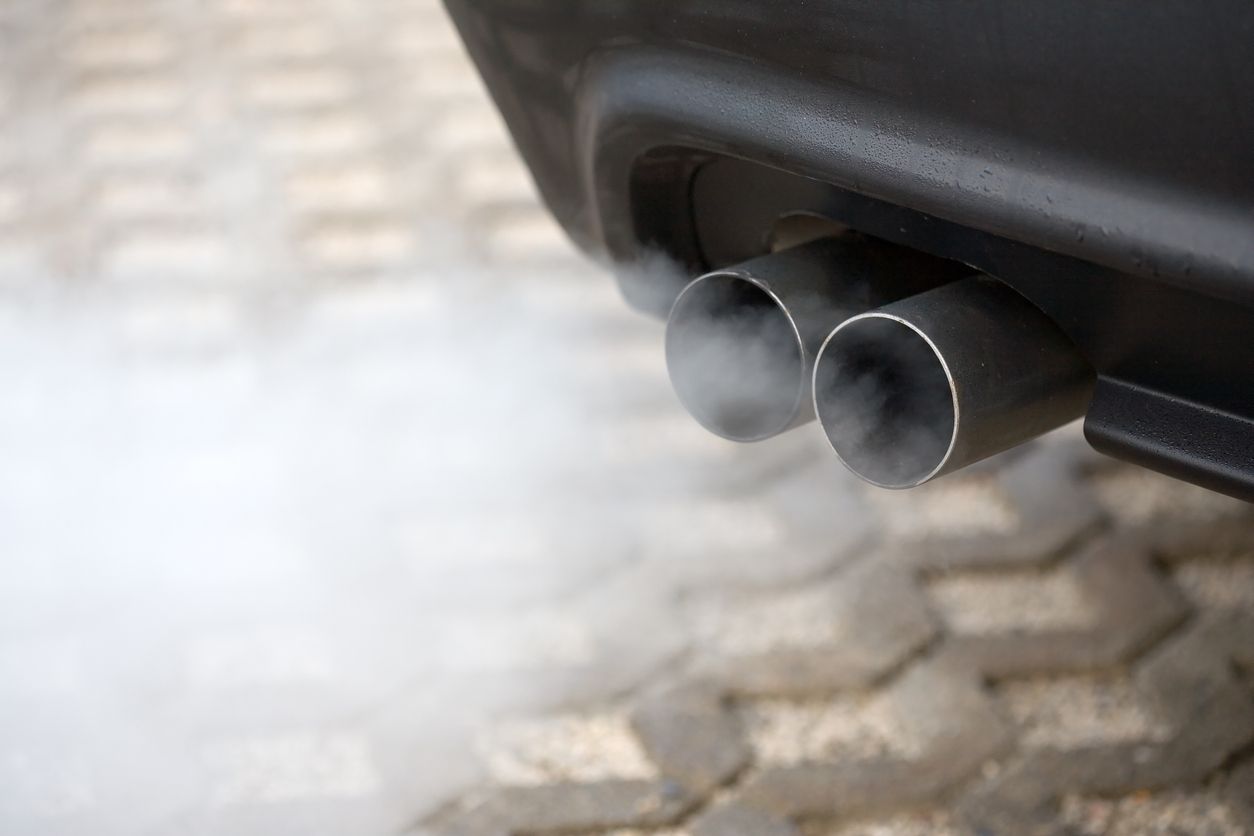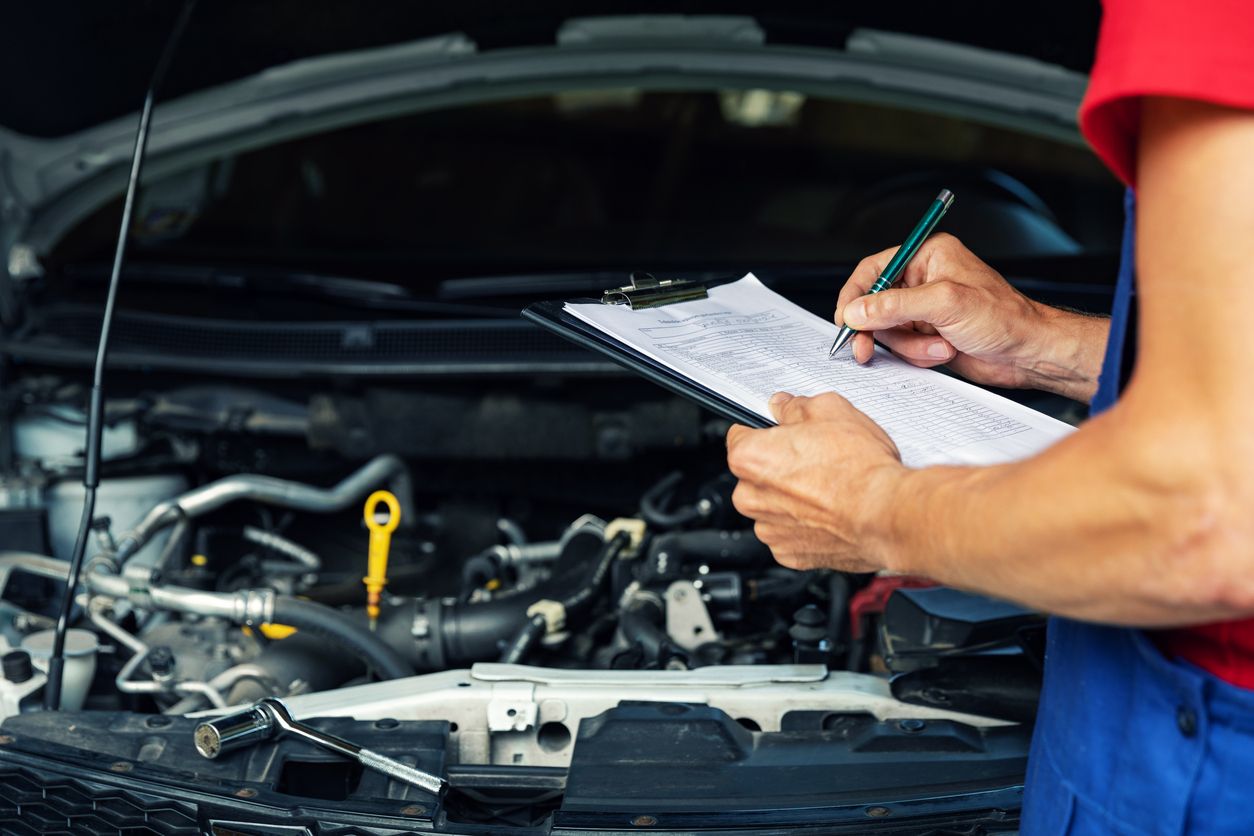
Pop, Skip, Sputter: Your Complete Guide to Engine Misfires
What is an engine misfire, and what would cause an engine to misfire in the first place? Learn everything you need to know about misfiring engines in this guide.
Read More
A flashing check engine light typically indicates a serious problem with your vehicle’s ignition, fuel, or emission systems. If your check engine light is on or flashing, it’s time to visit your neighborhood Firestone Complete Auto Care store so our auto care professionals can perform diagnostic tests and troubleshoot the problem. Delaying diagnostic tests and necessary engine repairs can cause your vehicle's problems and repair costs to add up quickly. While it’s impossible to say exactly why a check engine light is on or flashing without examining the vehicle and performing diagnostics tests, there are typically eight possible causes of a steady or flashing check engine light. Read below for details!
Tucked into your vehicle’s exhaust pipe there are multiple small oxygen sensors that constantly tests the exhaust system to measure the air-to-fuel ratio. The sensor transmits that data to your vehicle’s computer, which relies on this information to create an ideal air-to-fuel mixture based on the driving conditions. Symptoms of a faulty oxygen sensor aren’t obvious to a lot of motorists, so the check engine light may be the first time you become aware that a problem exists. Fixing a serious maintenance problem like a faulty oxygen sensor can improve your vehicle’s fuel efficiency by as much as 40%, according to the U.S. Department of Energy.
The check engine light may be alerting you to a problem with your vehicle’s gas cap. Addressing the issue may be as simple as twisting the gas cap to ensure it’s tight or replacing a missing or damaged gas cap. While it may not seem like a huge problem, a loose, missing, or damaged gas cap will cause fuel vapors to escape and the EVAP system to not function properly. That, in turn, can lead to an illuminated check engine light.
Spark plugs are small but mighty powerhouses. They generate the electric spark that enables your vehicle’s engine to start. But when spark plugs become worn-out, they can generate problems. If bad spark plugs aren’t replaced, they can trigger ignition problems, fuel waste, or damage to other parts of your vehicle. Worn-out spark plugs also can prevent your car from starting.
If the check engine light is signaling an issue with the spark plugs, it’s best not to put off getting the problem resolved. Otherwise, your vehicle’s issue could be more severe than just a check engine light. Bad spark plug wires can also be to blame for an illuminated check engine light, along with malfunctioning ignition coils. An ignition coil produces the electricity that enables spark plugs to ignite the mixture of fuel and air found in the engine’s combustion chamber.
Schedule an appointment at your local Firestone Complete Auto Care, and one of our auto care professionals can put the spark back in your vehicle.
A weak battery may be the culprit behind an illuminated check engine light. When a battery is faulty or isn’t fully charged, it can’t send the proper amount of energy to your vehicle’s computer system. That, in turn, can cause the check engine light to illuminate. Your vehicle’s dashboard may also feature a battery light that comes on when there’s a problem with the battery or alternator.
As its name suggests, the mass airflow sensor measures airflow so that the engine’s computer can help your vehicle run smoothly. When this sensor goes bad, your vehicle can stall, lose fuel efficiency, or idle roughly.The mass airflow sensor can be taken out and cleaned in some cases or can be swapped out for a new one. An airflow sensor issue may be related to a dirty air filter, so installing a new filter may help resolve the sensor problem. No matter the cause of a sensor problem, this situation can flip on your check engine light.
Your vehicle’s exhaust gas recirculation (EGR) value serves an important purpose: It helps reduce the emission of harmful nitrogen oxides by recirculating metered quantities of exhaust gas into the air intake system.
A faulty EGR valve can activate your vehicle’s check engine light. A faulty EGR valve that isn’t replaced can result in problems with fuel efficiency, power, and acceleration.
Your vehicle’s catalytic converter helps cut down on air pollution by removing pollutants from your vehicle’s exhaust. How does it work? The catalytic converter transforms three harmful compounds into less harmful compounds:
One sign that your catalytic converter may not be working correctly is if you notice the smell of rotten eggs. Another sign: The check engine light comes on. Damage to a catalytic converter typically happens when faulty plugs or sensors have been neglected. Such damage can lead to lower fuel efficiency and higher operating temperatures.
You can help prevent your vehicle’s catalytic converter from giving out by keeping up with regularly scheduled maintenance. If you suspect there’s a problem with the catalytic converter, we can take care of that, too.
A vacuum leak may be another reason that the check engine light illuminates. Although a vacuum leak may not be hazardous, it can cause a loss of vehicle power and a drop in fuel efficiency. Given the number of parts in your vehicle’s vacuum system, it’s wise to let a trained Firestone Complete Auto Care technician fix a suspected vacuum leak.
It’s common for the check engine light to come on momentarily when you first start your vehicle. This is a normal sign that your car is testing its circuits. However, if your check engine light stays on and does not turn off, it's time to have a professional at Firestone Complete Auto Care run a diagnostic check to determine the source of the issue.

What is an engine misfire, and what would cause an engine to misfire in the first place? Learn everything you need to know about misfiring engines in this guide.

White, blue, or black smoke: when should your car’s exhaust color be concerning? This guide explains what different exhaust colors mean, and what to do next!

Get ready to ace your vehicle safety inspection! Find out what inspectors check, common reasons for failure, and how to help keep your car in top condition.